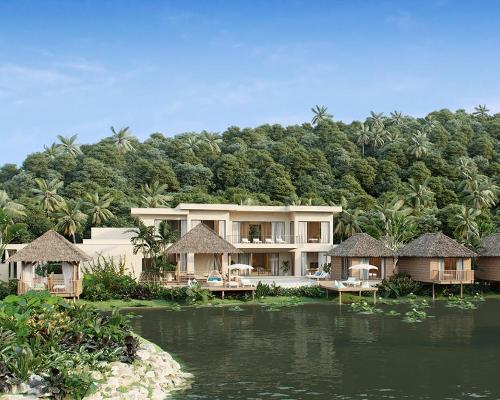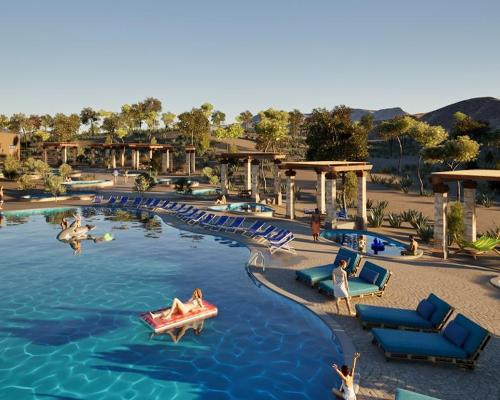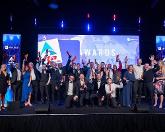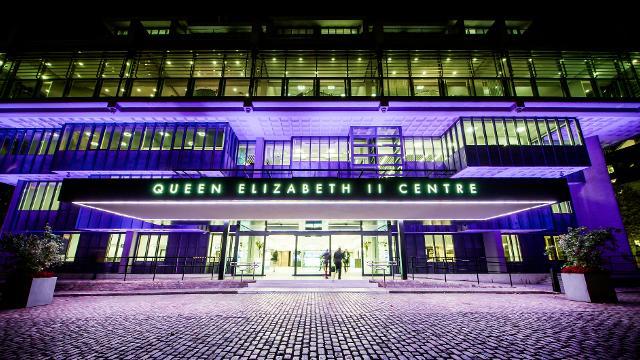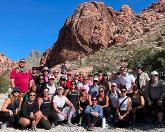see all jobs
Trendswatch 2020: The future of financial sustainability
In a time of financial uncertainty for the global museum community, this year's TrendsWatch report from the American Alliance of Museums (AAM) and the Center for the Future of Museums (CFM) is seeking to provoke discussion and find viable solutions to these ongoing challenges.
Exploring important cultural, technological, economic, environmental and policy events, the American Alliance of Museums (AAM) and the Center for the Future of Museums' (CFM) annual TrendsWatch Report identifies the major trends that will shape the way museums worldwide will handle affairs, do business and engage visitors.
Compiled by CFM's vice president of strategic foresight and founding director, Elizabeth Merritt, the future of financial sustainability is the focus of this year's report. With traditional funding models disrupted museums are now in a position where they must improve financial discipline, business planning and data literacy in order to remain profitable.
This year's report has been organised into four parts, each exploring trends of disruption and offering emerging practices that could fill these gaps.
The majority of nonprofits rely on a combination of four sources – earned revenue, charitable contributions, government funding and capital income. Most nonprofits utilise an even mix of these streams, which are more stable and less vulnerable to disruption if one source fails to supply for whatever reason.
Certain events, however – the report lists the 2007 mortgage crisis as an example – will affect all four of these income streams. This is where museums need to try new things and make changes from within to find new forms of revenue generation.
Earned income
Earned income consists of the money a museum makes from selling a product or service to someone at a price the consumer feels is worth the cost. A museum's income applies even if attendance is free entry, as visitors will spend money in places such as the café or the gift shop.
Research suggests that the number one reason people don’t come to a museum is that they prefer to do something else with their time, often spending time at home with the vast majority of this time spent on screens – television, movies, and digital devices. This is seeing museums move further into the experience economy, with the creation of immersive experiences and must-see exhibitions in an attempt to get its visitors off the sofa and through its doors.
Once the museum has succeeded in bringing in its audience, another trend to be taken advantage of is the rise of ethical consumerism.
"Given a choice, members of the public may prefer to buy from a nonprofit than a for-profit business if they can get what they want while feeling good about supporting a cause," says the report. "Consumers may trust museums to carry merchandise that reflects ethical values like sustainability, social justice, and fair labour practices."
Charitable incomePhilanthropy is a key part of most museums' funding models, but it can also be a poisoned chalice should they not look into where their money is coming from.
The fastest-growing charitable vehicle in the US is donor-advised funds (DAF) – a giving vehicle which allows donors to make a charitable contribution, receive an immediate tax deduction and then recommend grants from the fund over time. These funds now outnumber private foundations on a five to one ratio and their collective value is worth more than US$100bn.
"Impact philanthropy" is another key thing to consider, with donors and foundations increasingly want to see measurable change as a direct result of their support and often on a massive scale. This shift in philanthropy mentality could disadvantage museums seeking funding. Research from Wealth-X suggests that younger billionaires are less likely than their elders to fund the arts. New philanthropists, it states, "prefer to give to more nimble and innovative initiatives", with museums finding it challenging to measure and report on the large-scale impact their work has on society or the environment.
Toxic philanthropy is also a key issue, with the moral standing of donors based on how wealth is generated.
Government funding
With museums a major part of the public infrastructure, it's no surprise many non-profits receive significant government backing.
This support comes "with its own strings attached", which means a government-supported institution has to be sensitive to political considerations, satisfying both the taxpayer and the political institution.
In the US, nonprofits are not only seeing a decline in government funding but also attempts to actually increase the amount of money they must pay the government.
"There are perennial efforts at the state and local level to impose Payments in Lieu of Taxes (PILOT) on nonprofit organisations in order to offset the costs of government services," says the report. "As of 2012, at least 218 localities in 28 states had imposed PILOT payments of more than US$92m a year – mostly on colleges, universities, and hospitals, but also on a number of museums."
The fallout from the recession, says the report, has been a defining factor in museum funding today, with the event contributing in the long term with increased scrutiny and a reset in attitudes as to what government entities at any level support with public funding.
Financial CapitalFinancial capital can be split into three groups – endowments, temporarily restricted endowments and voluntarily restricted endowments.
Endowments are portions of a museum's investments which, typically aren't spent, rather interest accrued is used for specific purposes. Temporarily restricted endowments are designated to be spent in their entirety for specific purposes. Voluntarily restricted endowments are board designated for a specific purpose, though that decision can be reversed.
Museums will often make investments in brick-and-mortar purely because a big, tangible goal is a much easier sell to would-be donors. For this reason, institutions can often over-invest in new buildings, undermining long-term financial sustainability.
"If contributions fall short, or if projects funded by borrowing don’t yield the expected financial payback, a museum may be forced to make cuts that damage its mission," says the report.
"Despite lower-than-projected attendance and income, the museum is burdened with the higher operating costs of new and bigger space. In such cases, museums most often responded by cutting programming, reducing or eliminating plans for touring exhibitions, or even restricting opening hours."
The full Trendswatch report will be released on 24 March. Check back here for a Q&A with its author – Elizabeth Merritt, as we break down the report in more detail.
More News
- News by sector (all)
- All news
- Fitness
- Personal trainer
- Sport
- Spa
- Swimming
- Hospitality
- Entertainment & Gaming
- Commercial Leisure
- Property
- Architecture
- Design
- Tourism
- Travel
- Attractions
- Theme & Water Parks
- Arts & Culture
- Heritage & Museums
- Parks & Countryside
- Sales & Marketing
- Public Sector
- Training
- People
- Executive
- Apprenticeships
- Suppliers




















